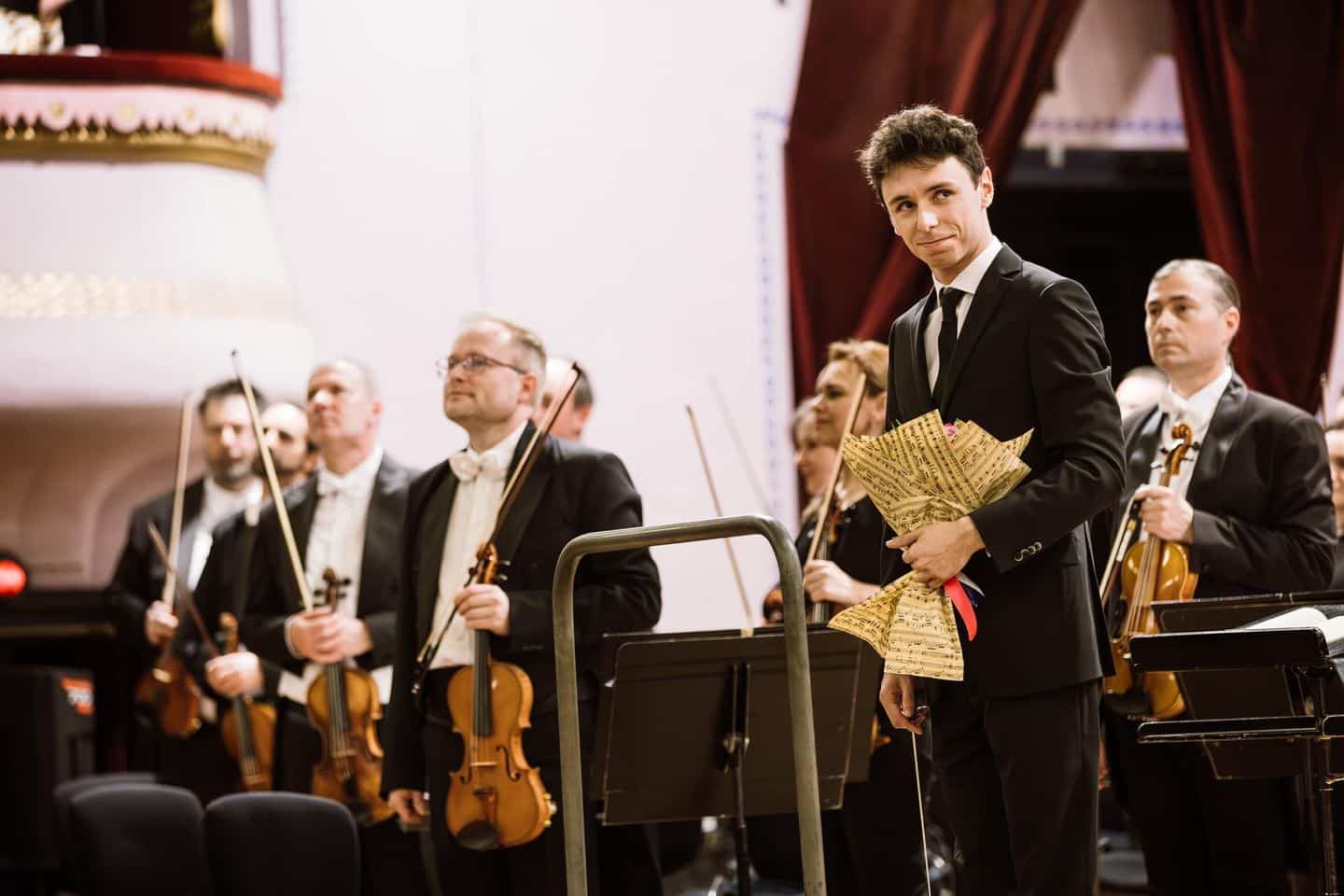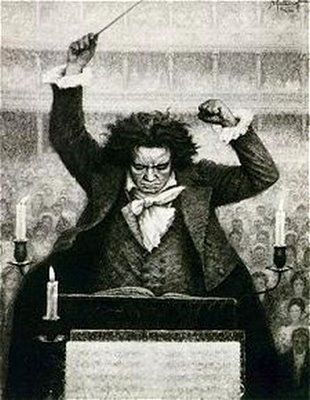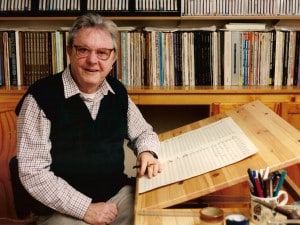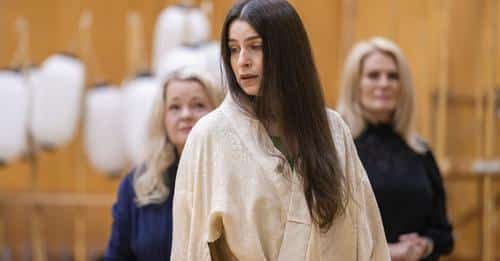Another dodgy conducting competition
OrchestrasThe Erich Bergel International Conducting Competition in Romania has been won by Davide Trolton.
His Bologna Conservatory teacher Luciano Acocella was on the jury.
As is so often the case.
In case you think this is a victimless act, 246 musicians paid 90 euros to apply and 40 of them paid a further 400 euros plus air fares and hotels to participate.






Fair enough. But did any other entrant have a teacher on the jury?
Do competitions actually matter in today’s day and age, especially with the advent of the internet? Reconciling lists of past competition laureates with the current status of their career should give one much pause. Perhaps the situation is somehow different for competitions at the very top, those which benefit from worldwide reputation and visibility. And even then, there are no guarantees.
This may be harsh to hear, but either you have the sort of talent — and enough luck — that gets you noticed and you have a breakthrough, or you don’t. As simple as that. Having a career, especially today, is not simply a question of talent and merit. It is the outcome of a whole constellation of circumstances that tilt everything in one’s favor. As much as many people in this business do resist the idea that outcomes in classical music are not necessarily rational, it is important to consider the enormous role played by luck and contingency. Luck can make or break a career. That, as well as a very thick skin, and nerves of steel. It is not a business for the overly sensitive.
Without making any sort of comment either way regarding the fairness of this particular competition, there are thousands of orchestra audition applicants all over the world, every year, spending thousands of dollars for the chance of getting an orchestra position — hotels, travel fees, food, coaching fees, instrument maintenance, missed income opportunities. It’s quite common to have several hundred applicants try out for one single position. For most of them, that money will simply be lost, and in some cases for all of them, when an orchestra decides to hire no one. And they may have to continue doing this many times until they finally do hit the jackpot. The risk/reward ratio of embarking on a classical music career is rarely favorable.
Ability is great and there is a plethora of that. Unfortunately, there is a dearth of opportunities; good timing, good luck, and the right contacts are far more important to launch a successful career.
One does not participate to win. But to have a video recordinf conducting an actual orchestra. If one wins, it’s a bonus.
Organized crime.
Small scale and bloodless but still highly illegal. When someone has the courage to get the law involved, this bullshit will continue.
Can the World Federation of International Music Competitions do something to prevent this?
Oh no… A white guy won. Can’t have that.
Beim Prüfen bin ich Wüterich
Da schone keine Seele ich;
Doch wenn er Protektionen hat,
Der Kandidat, da schweig’ ich fein
Das trägt was ein.
Heut müssen wir uns klug benehmen
Diplomatisch allen uns bequemen.
Merken wir, dass man ihn protegiert,
Wird der Kandidat gleich approbiert.
Sollte er auch als Kamel sich zeigen,
Werden wir zu jeder Dummheit schweigen.
Wenn es gilt, recht bieg- und schmiegsam sein,
Das trägt was ein.
This is from Zeller’s Der Vogelhändler, which is not well known outside Central Europe. The situation described is not exactly the same, but close enough.
Have a look at the winner in action and decide what you think about the level of the competition:
https://www.youtube.com/watch?v=6KC8WRMeHAU
Unreal. Zero ideas expressed.
Directly from the upbeat he is unfocused and without indication of any character. His motions contain no indication of rhythm.Throughout, he is entirely dependent on the musicality and professionalism of the orchestra to produce actual music-making. He is a student at best and should actually be practicing an instrument and learning how to play in an orchestra. This is the problem with most conductors: they go to conducting school and completely miss the essential training of being a player in one. They learn to do a visual impression of a conductor and that’s where they stay. It’s the musical equivalent of marrying the boss’s daughter and then tasked with running the company.
This was ridiculous.
Santo cielo! No backbone.
So lethargic even before the upbeat…
Alumnus of the Jackie Gleason School of Conducting?
Probably the orchestra prize winner is the one. Looking to the jury, at least half of them had nothing to look for there.
Looking at videos of the prize winners, the best are the 3rd and the one who got the Orchestra Prize.
1st prize – Trolton Davide
2nd prize – Yagüe Jorge
3rd prize – Zhuo Xiao
Orchestra prize – Park Keuntae
The most dodgy part is the part where you have to pay 90 euros just to apply.
Let’s see … 246 x 90 = 22,140 euros!!!!
HOLY MOLY!
I am holding my first Chet International Open Conducting Competition in Paris during the Olympic Games.
For the low low entry fee of $50, you can enter as often as you like to increase your chances of being selected, just paying $50 per entry. Those selected can pay me an additional $500, which will cover one breakfast of a croissant and an orange juice and a slice of camembert.
Meet me in front of the Eiffel Tower on a Sunday morning, wave your baton in front of me for 5 minutes to impress me.
The winner will get 1 baguette, 1 pain au chocolat, and 1 bottle of Perrier. And a photo with me to be distributed exclusively on my social media accounts.
à bientôt
Hi Klaus!
Gosh, with all that application money for your new competition, surely that’s enough to afford a concerto round, to test the budding conductor’s sympathy towards a soloist? Know any soloist up for doing this? How about Yuja?
No pedagogue should ever serve on a jury panel of anyone they have taught, period. The problem is, there is no governing body for music competitions, for rules to be put in place, so the results unless there is someone so much superior to all of the others in the competition are frequently fraudulent. Further, competitions which are crowd judged over the internet need to stop. I just witnessed a competition in the Northeast which featured a performer who paid for hits and after several days and a low amount of hits, suddenly overnight received a massive increase. The performer’s parents were major donors to the organization which sponsored the competition and the organization was loathe at first to do anything about it, so as to not upset the parents and lose their funding. It may be appropriate at this point for there to be an international music competition body who makes rules for competitions akin to organizations for sports.
I don’t know a famous conductor today who got his start after winning a competition.
Want more competitions? How about orchestras competing for the best Beethoven symphony cycle? Best Bruckner cycle? Best Italian opera orchestra?
How about :
Seiji Ozawa and Kazuki Yamada (Besançon), Valery Gergiev and Mariss Jansons (Karajan), Simon Rattle (now-defunct English competition), Gustavo Dudamel, Lahav Shani, Kah-Chun Wong (Mahler). I know there are more, these are the ones I can remember off the top of my head
Also Riccardo Muti, Riccardo Chailly, Eliahu Inbal (Cantelli), Yutaka Sado, Lionel Bringuier, Jonathon Heyward (Besançon), Rafael Payare, Mei-Ann Chen, Joshua Weilerstein (Malko), Francois-Xavier Roth, Elim Chan, David Afhkam (Flick)
Talk about a very mixed bag…
Dear Mr. Lebrecht,
thank you for this article on Erich Bergel Competition, though we are sorry for some offense that a refined person like you could have avoided.
As every event of its kind, there are many delicate points, some of them avoidable, some not.
I want to make clear a few things, though.
The rules, point 2.2, state clearly that:
“Former students of one or more members of the jury, as well as musicians that have kinship or professional relationships with one or more members of the jury, will have to declare their current situation at the time of application”
This is because we know we have to face the possibility of unfair behavior, at least this way we know who is going to try to cheat. This is not the only way, but we decided for this one.
This rule was well respected, both by the participants (not only Mr. Trolton, but others who were familiar with some members of the jury) and the members of the jury as well.
Second, due to various reasons, M° Acocella arrived only at the Semifinal, and as far as we know he wasn’t in touch with others members of the jury before.
Last, there were 8 members in the jury, one couldn’t attend the final (M° Jinga) and we decided not to replace him, thus 7 people voted. The voting for the final was organized in this way: each member of the jury wrote the names of 1st, 2nd and 3rd prize on a sheet of paper, without letting the others know his choice. The results were almost unanimous.
We wish the best for the future of these young musicians, all of them, and we hope they will be able to face the difficult task having to do with the press, not only with their audience!
PS the money collected from the applications were spent to cover the costs of the competition, that was only in part financed by local money. Nobody became rich unfortunately.
Maria Ferencz
Directing Board
Erich Bergel International Conducting Competition
While the practice in question is often regarded with suspicion, it’s curious that the “pay to sing” model doesn’t attract the same level of scrutiny. In this model, numerous vocalists invest substantial sums into production companies, which in turn, primarily compensate the directors. Unfortunately, this financial flow seems to neglect the musicians, who, despite their significant contributions, remain unrecognized and unrewarded in the aftermath. This raises important questions about the fairness and transparency of the industry’s financial dealings, especially concerning the allocation of attention and resources to the artists who are the backbone of any musical endeavor. It’s essential to shine a light on these practices and advocate for a more equitable system that honors and supports all contributors, not just those in the limelight or behind the scenes.
The music profession ain’t for sissies! “Persistence is Omnipotent.” The people who succeed are the ones who have the will to accept defeat and keep going.